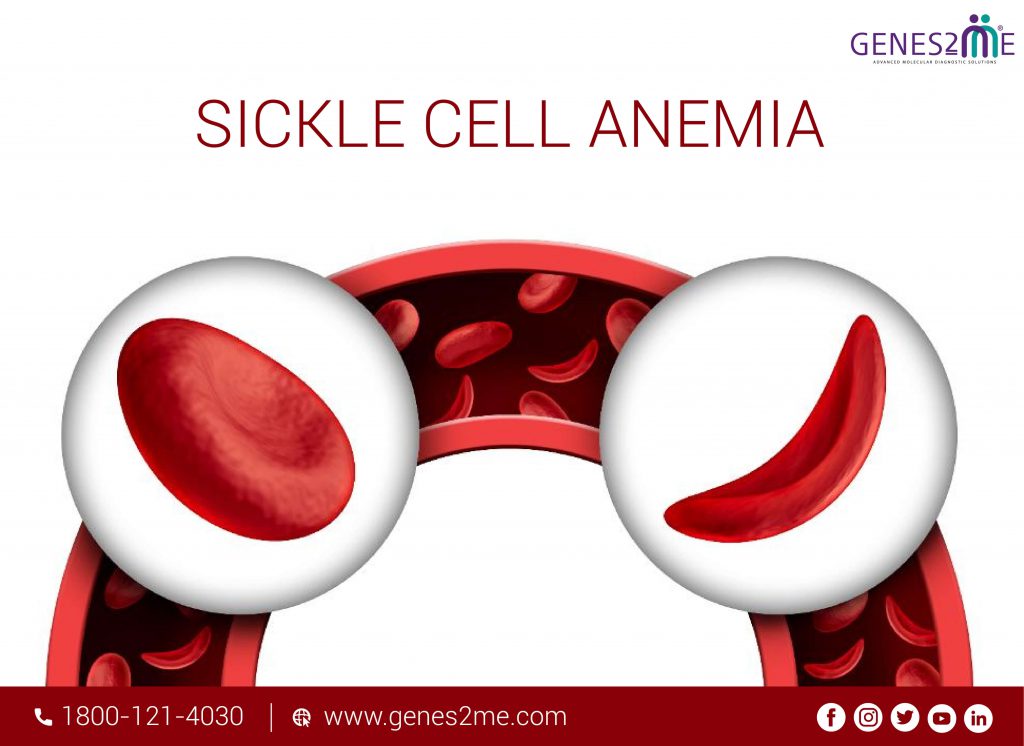Sickle Cell Disease – Inherited Blood Disorder unknown to many individuals

What is Sickle Cell Disease?
A group of heredity blood disorders which can cause mild to severe complications on the health of an individual. Sickle cell anemia comes under the category of sickle cell disease associated with the mishappening of the red blood cells. Abnormal sickle-shaped red blood cells are generated, which leads to blockage of blood vessels. This further blocks the movement of blood to different parts of the body resulting in anemia and periodic episodes of pain. This is a genetic condition that is usually passed on from the parents and cannot spread from one person to another. If not detected at an early stage, the sickle cell can cause severe damage to other organs of the body such as the liver, heart, and kidneys. Early intervention can help the doctors to design effective treatment procedures for efficient management of the disease.
Symptoms:
1. Anemia: Distorted red blood cells due to sickle shape are destroyed easily. This leads to only a few blood cells in the body of individuals resulting in anemia.
2. Pain: The blockage of blood flow to different parts of the body and blood vessels results in severe pain crisis in the body of an individual. Periodic episodes of pain are experienced by an individual regularly.
3. Recurring infections: Inadequate blood flow and abnormally modified blood cells make an individual vulnerable to recurring infections due to reduced immunity.
4. Issues with the vision: Sickle-shaped cells may block the flow of blood flowing to the retina, which may result in certain problems in the vision of an individual.
Role of Genetic Testing in the detection of Sickle Cell Disease:
Genetic testing has revolutionized the field of diagnostics. Precise, specific, and innovative solutions to rare genetic disorders and chromosomal abnormalities can be obtained by performing different procedures pertaining to genetic testing. Genes2Me, one of the thought leaders in the field of molecular diagnostics and genetic testing, has a developed Sickle Free, a revolutionary testing procedure for detecting normal, Sickle cell, carrier, and HbSC disease in 4 easy steps. This testing procedure can be done in minimal time and requirements. Just one drop of blood is used as a sample, and results can be obtained in a span of 10 minutes. The test is suitable for newborn screening and can also be used for screening the masses. Sickle cell solubility testing procedures are also available to deliver accurate and reliable results. Complimentary pre and post genetic counseling sessions are also provided for a better understanding of results. For more details, you can visit www.genes2me.com
Sickle Cell trait: Combination of altered hemoglobin and normal hemoglobin results in sickle cell trait. Individuals carry one faulty copy of the modified hemoglobin gene. Either of the parents passes to the gene to the next generation. Sickle cell trait will not develop to form sickle cell disorder. A blood test is required for the detection of sickle cell trait as we don’t observe symptoms in the individuals having sickle cell trait.
